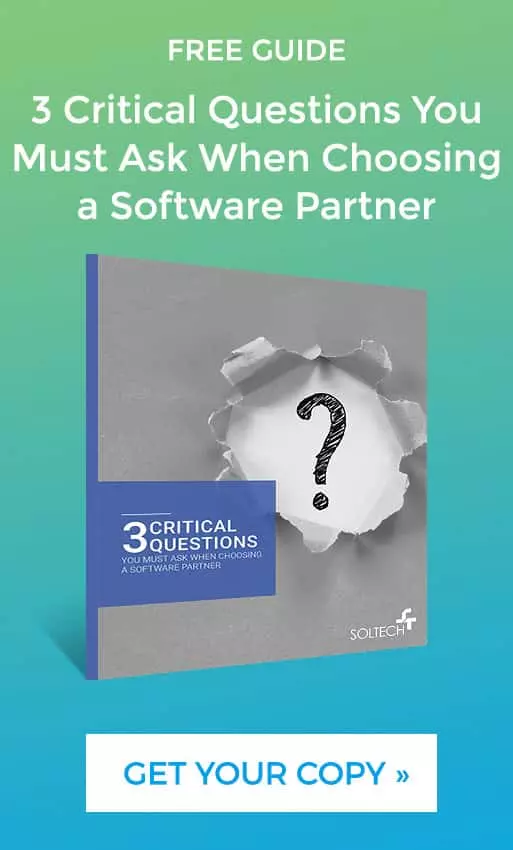
How Do I Terminate Services From a Non-performing Vendor?
By Tim Smith
The cliché is as true in business as it is in life: breaking up is hard to do. It’s even harder to do when you’ve got to terminate the contract of a vendor because they’re not meeting your needs, or they’re missing all the deadlines on your software development project.
No matter what kind of situation you find yourself in with a vendor, the good news is that there are ways you can extricate yourself from the relationship with minimal damage. Keep reading for some advice on how to best end a contract with a vendor.
Step 1: Read the Fine Print
Before you speak with the vendor, it’s critical to read the fine print of any service agreement or contract you have with the vendor. No sense in getting everyone upset if you don’t have to.

Every service agreement or contract has termination clauses written into them, so read yours to see if you can terminate early, the circumstances in which you can do so, and the potential penalties for it. Most termination clauses include two standard points:
- Termination will occur if the terms of the Terms and Conditions agreement is violated.
- Termination can happen for any reason at the discretion of the business.
Clauses also tend to include specific items such as “the right to use the Services and access the Website will immediately cease.” You may also be required to give them notice of your wish to terminate the agreement, such as a letter sent to them 30 days ahead of time. Many agreements require customers to pay a fee for early termination, so be sure you want to pay the penalty before terminating.
Step 2: Gather Your Assets
You should do this step even if you’re happy with your vendor, as you’ll still need to track all the information you need to access the vendor’s services and code, as appropriate. It’s critical if you’re thinking of terminating the vendor and switching to someone else. You’ll want to ensure you’ve got control and copies of everything you’ll need if you switch to the new vendor. That includes all login information, copies of source code, and anything else relevant to projects involving the vendor’s products and services.
Step 3: Speak with the Existing Vendor
After you’ve understood the details of your agreement and you’re ready to terminate the agreement, it’s time to reach out to the vendor. Your agreement will have service level agreements that state certain levels of uptime and availability the vendor must adhere to, as well as penalties for them failing to meet those levels. It’s key for both of you to understand what the issues are and if it’s possible to resolve them.
Step 4: Evaluate New Vendors
If you’ve decided to move ahead with the termination, you’ll need to know what new vendor will replace the old one. Follow your company’s vendor review process to research and vet new vendors. Set up demo and exploratory calls with them to review the must-haves and nice-to-haves with them. Ensure they understand you’re switching from another vendor and ask them about their transition process.

Here are a few questions to ask the new vendor:
- Where are their resources located? Are they on-shore or off-shore? Are they predominantly a remote company, or do they have a central hub?
- Do they have permanent staff, or do they hire contractors for each project? This is an important question for you, since contract employees may leave after a project, taking all the knowledge with them. Support will be more challenging for them if they do not have a good knowledge transfer process.
- Do they have NDAs with all their clients? If yes, ask to see a copy; if no, ask why not?
- What kind of support options do they have? Dig in to find out the levels of support they offer, who handles support requests, and the turnaround time for requests.
- Are they familiar with your tech stack? Is it a legacy technology that will be sunsetted at some point, but you’ll still be using? Or is it the latest flavor of the month? Depending on your situation, you’ll want to ensure the vendor can handle your situation now and in the future.
- Does the company offer insurance for large projects with risk? One that includes coverage for errors in mission, security breaches, ransomware attacks, and more?
Step 5: Terminate the Contract
Take a deep breath and go for it. It’s time to terminate the contract with your existing vendor and switch over to the new one. You’ll probably need to involve your finance or accounting team, upper management, and the legal team, so make sure they’re updated on the situation.
Terminating a vendor contract is no small thing for a company. There are many implications, both financial and technological, but in the long run, it can be a good thing for you. – if you do it right. For more information on finding the best software partner for your company every time, find out what the three critical questions you must ask them.





